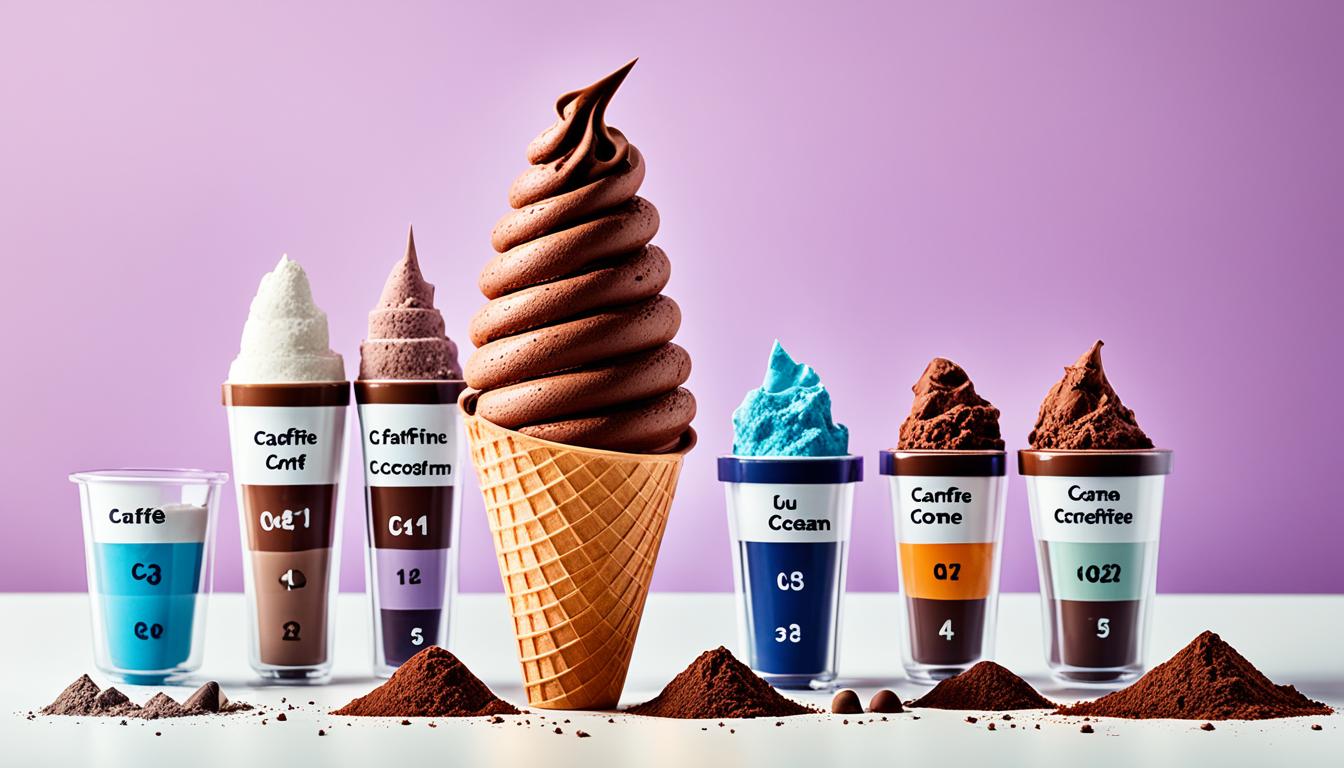The Ice Cream Diet claims you can lose weight while enjoying ice cream daily, but its effectiveness is questionable. Though it emphasizes caloric restriction, it overlooks essential nutrients your body needs. High sugar and fat content in ice cream can lead to health issues if consumed excessively. Moderation and balance are key for sustainable health. To discover more about its actual benefits and drawbacks, you might want to explore the specifics behind this popular diet trend.
Key Takeaways
- The Ice Cream Diet promotes calorie restriction, but weight loss is primarily due to reducing overall calorie intake rather than ice cream itself.
- Limited scientific evidence supports the diet’s effectiveness; concerns arise over high sugar and fat content leading to potential health risks.
- Nutrient deficiencies may occur due to inadequate dietary fiber and essential nutrients when relying heavily on ice cream.
- Moderate ice cream consumption may lower cardiovascular risks, but overall health benefits are undermined by its high-calorie, low-nutrient nature.
- Public perception views the diet as unrealistic for long-term health, emphasizing the importance of moderation and balanced nutrition instead.
History and Concept of the Ice Cream Diet

When you plunge into the history and concept of the Ice Cream Diet, you’ll find it was first introduced in Holly McCord’s 2002 book. This diet encourages you to indulge in a daily portion of ice cream while adhering to a calorie-restricted plan of 1,250 calories, totaling 1,500 including the treat. The premise suggests potential benefits like weight loss and even mood improvements. However, it’s often seen as a fad diet, drawing skepticism for its sustainability. Ice cream’s rich history, from royal indulgence in ancient times to its social appeal during gatherings, adds a unique flavor to the diet’s marketing. Interestingly, the diet can be complemented by incorporating frozen yogurt pops, which offer a healthier alternative while still satisfying sweet cravings. Additionally, many ice cream recipes, such as sugar-free vanilla ice cream, provide options for those looking to enjoy a treat while being mindful of their dietary restrictions. Ultimately, the Ice Cream Diet mixes pleasure with weight management, tempting many with its unconventional approach. Additionally, indulging in treats like ice cream can evoke feelings of comfort, similar to enjoying classic holiday dishes such as corn on the cob. In fact, the average ice cream consumption per person in the U.S. is about 23 pounds annually, illustrating its popularity as a treat among many.
Nutritional Considerations and Health Impacts

While indulging in the Ice Cream Diet may sound appealing, it’s essential to contemplate its nutritional implications and health impacts. Ice cream packs a calorie punch, with around 140 calories and 14 grams of sugar per half-cup serving. Relying heavily on it might lead to nutrient deficiencies, as it lacks dietary fiber and essential nutrients found in whole foods. High sugar levels can spike your blood sugar, while the saturated fat content raises obesity concerns. However, some studies suggest that moderate consumption may lower cardiovascular risks and even reduce type-2 diabetes chances. Ice cream is a source of phosphorus and calcium, but that does not compensate for its high calorie and sugar content. Additionally, excessive sugar intake can lead to an increased risk of various health issues, so be cautious with frequent intake, as the potential health benefits don’t outweigh the risks associated with high sugar and calorie content. To enhance your diet, consider incorporating omega-3 rich foods like chia seeds, which offer beneficial nutrients that ice cream lacks. Chia seeds are particularly effective in promoting satiety and weight loss, making them an excellent addition to a balanced diet. It’s important to balance indulgences with a retirement savings plan to ensure long-term financial health and well-being.
Weight Loss Mechanisms and Claims

The Ice Cream Diet offers a unique approach to weight loss, emphasizing the importance of caloric restriction paired with a balanced meal plan. You’ll lose weight mainly through consuming fewer calories, while still enjoying the occasional treat. The diet encourages a low-fat, high-fiber intake with plenty of fruits and vegetables, leading to greater satisfaction and fullness. Coffee’s antioxidants can also support weight management by reducing oxidative stress, which may influence fat storage. Portion control is essential—indulging in ice cream in moderation helps manage cravings without derailing your efforts. Plus, calcium-rich foods like dairy can aid in regulating fat storage and metabolism. By allowing room for treats, you’re likely to feel less deprived, making it easier to stick to your plan and achieve your weight loss goals. Additionally, studies show that calcium supplements can lead to significantly increased fat loss, reinforcing the diet’s emphasis on dairy intake. Furthermore, incorporating a balanced diet into your routine can enhance overall health, supporting your weight loss journey. Moreover, incorporating low light office plants into your workspace can enhance your environment, promoting a more relaxed and focused mindset while on your weight loss journey. Consuming green juice as part of your daily routine can also provide essential nutrients and aid in detoxification, complementing your weight loss efforts.
Scientific Evidence and Research Findings

Although the Ice Cream Diet presents an appealing concept, scientific evidence supporting its effectiveness for weight loss remains limited.
The diet typically combines ice cream with a low-calorie, high-fiber meal plan, but any weight loss is mainly due to caloric restriction rather than ice cream itself. A single serving is high in calories, fat, and sugar, raising nutritional concerns. Additionally, excessive consumption of high-calorie foods like ice cream can lead to gastrointestinal discomfort, which may deter adherence to the diet. Regular monitoring of production quantity variance can help individuals assess their caloric intake accurately. Moreover, incorporating HEPA filters in home environments can improve air quality, potentially aiding overall health and wellness during a weight loss journey. Including low-carb meal options like the Turkey Bean and Tomato Zoodle Bowl may provide more balanced nutrition while still being satisfying.
The Ice Cream Diet’s weight loss benefits stem from caloric restriction, not the ice cream, raising nutritional concerns.
While some observational studies suggest moderate ice cream consumption may lower cardiovascular risks, they struggle with confounding variables and can’t prove causality. Furthermore, the link to heart disease appears to be more about overall diet quality than the ice cream itself.
Additionally, there’s a lack of robust clinical trials supporting the diet’s health benefits. Overall, the high energy density and potential metabolic impact of ice cream complicate its role in a healthy weight loss strategy.
Public Perception and Long-Term Sustainability

Many people find the idea of an ice cream diet enticing, but it often raises skepticism regarding its practicality for lasting health benefits. Most see it as unrealistic because it lacks essential nutrients required for a balanced diet. Additionally, regular consumption of ice cream can be linked to increased heart disease risk, highlighting the importance of moderation. Ice cream contains high sugar and fat content, which can contribute to various health issues if consumed excessively. Furthermore, the increasing focus on sustainable tea production reflects a broader trend toward healthier, more responsible food choices.
As consumer behavior shifts toward healthier choices, ice cream consumption has declined, reflecting a preference for moderation and variety. You’re likely aware that diets focusing solely on one food type, like ice cream, aren’t sustainable long-term. Recent research indicates that consumers cannot distinguish between different fat contents in ice cream, challenging the notion that higher fat equates to better taste. Moreover, many individuals are now prioritizing their budget when making food choices, leading to a more thoughtful approach to treat consumption.
While some enjoy premium ingredients, many understand the importance of moderation. Health education emphasizes a balanced diet, where ice cream can fit in as an occasional treat rather than a staple. Embracing a diverse diet guarantees better health and sustainability for your lifestyle.
Frequently Asked Questions
Can I Eat Any Type of Ice Cream on This Diet?
You can enjoy various types of ice cream on this diet, but it’s important to choose wisely.
Opt for healthier options like Nick’s or Halo Top, which use natural sweeteners and lower sugar. If you’re following a keto plan, Rebel Ice Cream fits well.
Just remember to balance your ice cream intake with nutritious foods, control your portion sizes, and stay mindful of your overall calorie consumption to maintain a healthy diet.
How Much Ice Cream Should I Consume Daily?
Did you know that moderate ice cream consumption, up to twice a week, may reduce cardiovascular disease risk by 12%?
When it comes to daily intake, it’s best to stick to about a half-cup serving a few times a week rather than every day. This way, you enjoy it without overloading on calories or sugar.
Balance it with nutrient-dense foods to maintain a healthy diet while savoring your treat!
Is the Ice Cream Diet Suitable for Children?
The ice cream diet isn’t suitable for children.
Regularly consuming ice cream can lead to health issues like obesity and dental problems due to its high sugar and calorie content.
It’s important to focus on balanced nutrition for kids, so consider healthier alternatives instead.
If you do include ice cream, keep it as an occasional treat to teach moderation.
Homemade options can help you control ingredients and portions better.
What Flavors Are Recommended for the Ice Cream Diet?
They say, “A little indulgence goes a long way.”
When considering flavors for your ice cream choices, opt for low-calorie options like Halo Top’s Chocolate Chip Cookie Dough or Birthday Cake.
Enlightened Ice Cream’s vanilla offers high protein, while Rebel’s salted caramel caters to low-carb diets.
For a vegan twist, try Cado’s lemon or strawberry.
With these recommended flavors, you can enjoy your treat while still keeping your health goals in mind!
Can I Combine the Ice Cream Diet With Other Diets?
Yes, you can combine the ice cream diet with other diets!
Just make sure you manage your overall calorie intake and balance your macronutrients.
For instance, pairing it with low-carb or high-protein diets can work if you control portions.
Opt for healthier ice cream options when integrating it with low-fat or plant-based diets.
Just remember to maintain nutritional variety and avoid overemphasizing ice cream to meet your dietary goals effectively.
Conclusion
To sum up, the ice cream diet certainly piques interest, but it’s essential to approach it with caution. While indulging in a sweet treat might bring joy, remember that moderation is key. Curiously, studies show that people who maintain a balanced diet alongside occasional indulgences are 50% more likely to stick to their weight loss goals long-term. So, if you choose to indulge, do so wisely and keep your overall nutrition in check for sustainable results.









